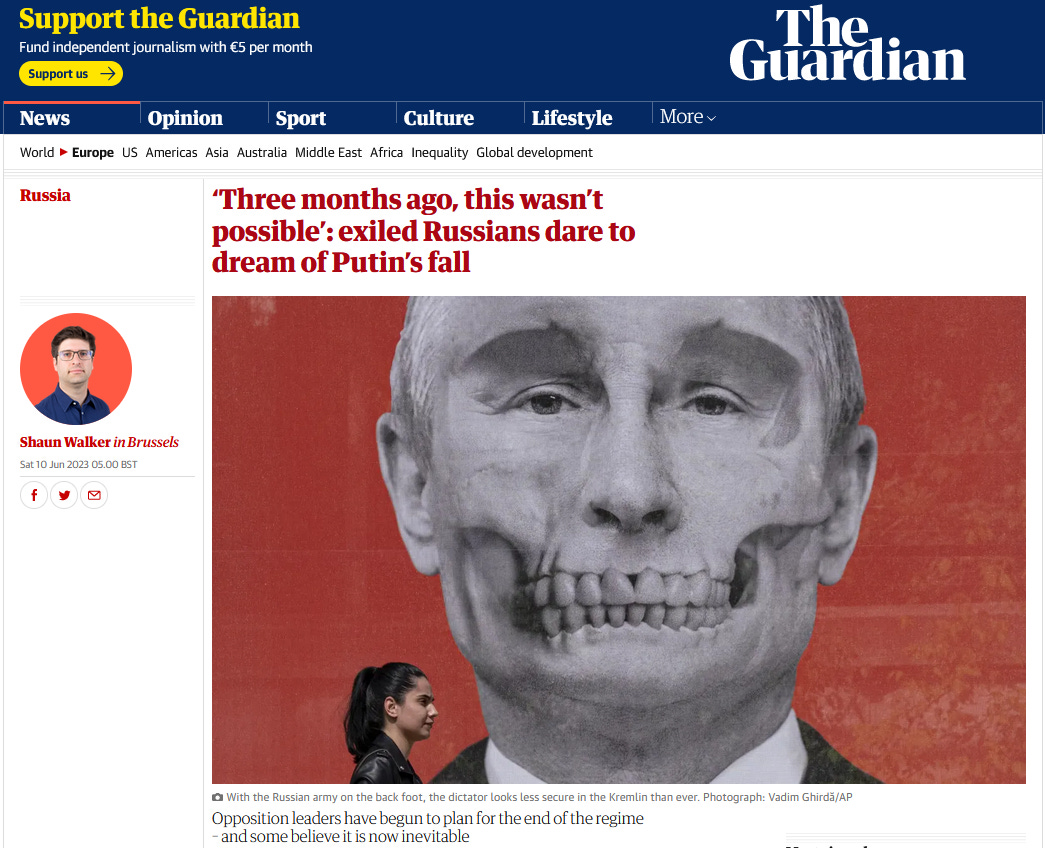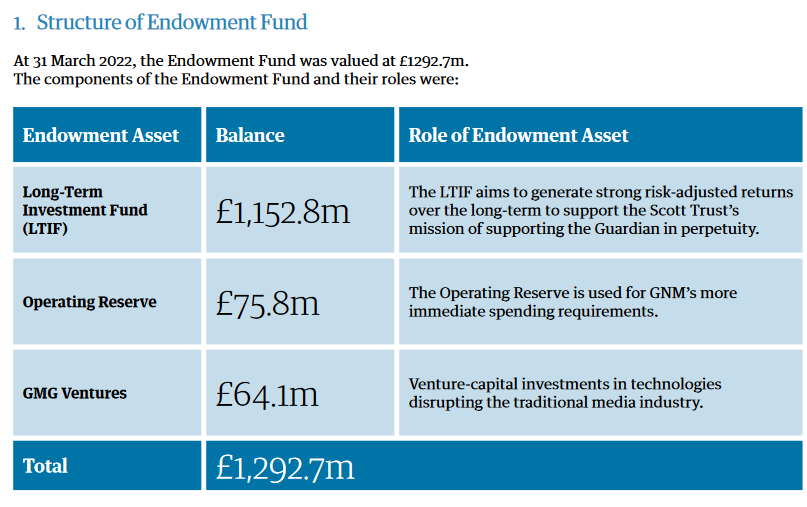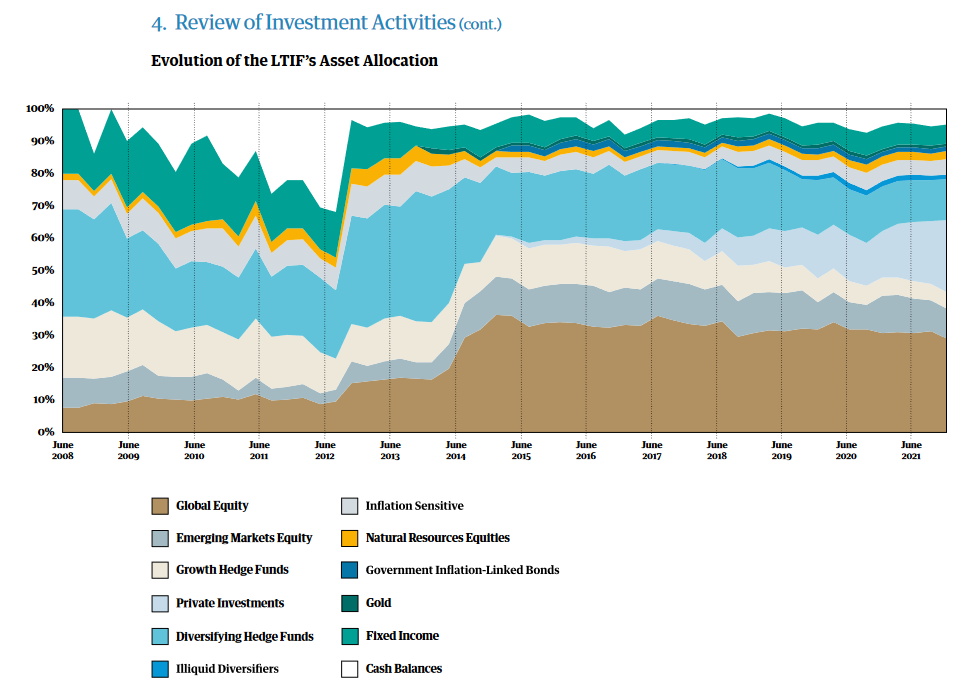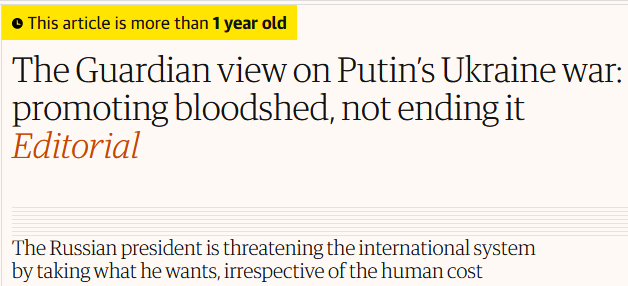Anatomy of a (S)hitpiece
The UK Guardian, the "Coming Post-Putin Era", and An Avalanche of Unwarranted Assumptions
“One does not read The Guardian. One simply monitors it.”
anonymous comment from The Guardian’s ‘Comment Is Free’ section
If you register for a free account on the UK Guardian website, it will tell you how many articles you have read in the last calendar year. As of yesterday, I am at 1,037 in total. They use this figure to ask you for a donation to keep their operations running without resorting to advertisements cluttering the site.
As of last year, the UK Guardian is now the “most widely used newspaper website and app for news” in the UK, according to OFCOM, the regulatory body for broadcasting, communications, and the post office….next to the King of All News, the Beeb (BBC).
The Guardian ranks 7th in the world’s most popular news websites in the English language, blowing away competitors such as The Washington Post, CNBC.com, and USA Today:
The Guardian is part of Guardian Media Group, a collection of media outlets that include the Sunday version of the Guardian known as “The Observer”. The Guardian Media Group is owned entirely by the Scott Trust Limited, a UK company that replaced The Scott Trust in 2008, the owner of The Guardian since 1936. The trust was originally set up by John Russell Scott (the then-owner of The Manchester Guardian, the UK Guardian’s original name) in order to avoid the newspaper going out of business due to legal disputes arising from issues of inheritance, and also to give The Guardian enough of a financial cushion so that it could “protect the liberal editorial line of the Guardian from interference by future proprietors”.
In 2014, The Scott Trust Limited sold its 50.1% stake in Auto Trader, netting £619 million. Added to the existing £253.7 million of cash and investments it had declared in its 2013 report gives the trust a value of almost one billion UK pounds!
The newspaper has long been a money-loser. Changing the format from broadsheet to tabloid, and switching the focus from print to internet allowed the Guardian to post its first profit in a long, long time in 2019 (with a little help from restructuring and cost-cutting as well). The Scott Trust Limited was by that time valued at a little over one billion UK pounds. On top of that, the UK Guardian has well over one million monthly and yearly subscribers!
The Scott Trust Limited exists to keep the UK Guardian running, and its liberal mission statement intact. They are sitting on a massive pile of money, which is why I do not feel guilty for not being a subscriber myself (I’ll make this Substack 100% free if I can amass 1/500th of what that trust has in assets).
According to the 2021/2022 Scott Trust Endowment Fund Performance Report (.pdf upon request), we learn the following:
Its LTIF Asset Allocation:
And some examples of what they are invested in:
Sustainability, energy transition, and ESG should all leap off of the page for you as you read the above examples. Make sure to keep these in mind whenever you monitor their website.
There are those who attack the Guardian’s owners for diving more deeply into the world of private equity. I will share two examples with you. The first one comes from the Monthly Review Online, a Marxist publication that defines itself as “an independent socialist magazine”. It highlights how the Guardian has compromised itself in the hunt for advertising dollars, the same dollars that make up the overwhelming majority of its revenue:
The advance of the internet and the world of social media shares has meant that British newspapers have increasingly geared their output toward the United States audience, The Daily Mail is an excellent example of this, having long become a perennial favourite of the far-right MAGA crowd. The Guardian likewise has aimed to generate revenue from the American audience with then Guardian CEO Andrew Miller saying in 2013 that the goal was to “increase the commercial opportunity of our readership.”
I took on the role two years ago and one of the first things I wanted to do was really understand where our readership is to try and see increasing ways of monetising the digital business. It took two seconds to realise that two-thirds of our readers are outside of the UK. And therefore I wanted to try a strategy of modest investment to make sure we increase the commercial opportunity of our readership.
Andrew Miller, 2013
Of course, socialism is not the ideal thing to be promoting to American audiences with Republicans being outright hostile to the prospect and Democrats being at least disinterested, if not equally as hostile. By sticking to the mainstream neoliberal consensus in the United States, having supported Hilary Clinton over Bernie Sanders, for example, The Guardian ensures that it doesn’t rock the boat and continues to keep the revenue flowing. Their positions on Venezuela and Julian Assange fit perfectly in line, not with the British Labour Party and its membership, but the American Democratic Party of Hilary Clinton and Joe Biden.
The majority of that income comes from ad-revenue.
Greenwashing and bowing down to corporate giants:
In 2014, The Guardian inked a “seven-figure” deal with Unilever that was “centred on the shared values of sustainable living and open storytelling”. The move came despite The Guardian‘s public commitment to environmentalism and Unilever being criticised by Greenpeace for causing deforestation through their purchasing of palm oil from suppliers that are doing untold damage to the rainforests of Indonesia. Despite a public commitment to obtaining their palm oil from sustainable sources by 2015, Unilever was criticised in 2016 by Amnesty International when it was revealed their Singapore based palm oil supplier Wilmar International was profiting from child labour and forced labour.
In 2015 The Telegraph revealed that the previous year The Guardian had willingly changed and then removed an article on the Iraq war to avoid upsetting Apple. Apple had purchased significantly expensive “wraparound” advertising on the Guardian‘s website and stipulated that their adverts shouldn’t appear next to “negative news”, a stipulation with an incredibly broad range.
Sponsored articles, especially from Big Pharma:
A quick glance at the comments section reveals that the above article once contained the phrase “this content is supported by sponsors” which it no longer does. In 2016 the newspaper began to label sponsored content as “paid content” and appears to have removed all the old references to sponsored content while doing so. Who the sponsors were was seemingly never revealed.
Also in 2016, veteran health care journalist Trudy Lieberman revealed that The Guardian has published similar sponsored articles in their health care section where the “this content is supported by sponsors” vanished after a number of seconds. Again, no information seems to have been provided as to who was sponsoring the articles or in what form, yet the article contained “quotes from officials representing Pfizer, AstraZeneca, GSK, and the Association of the British Pharmaceutical Industry”.
In 2015, The Guardian had delivered 346 commercial partnerships in the past year including the publication of sponsored content and a project for Sky which “included collating all the articles written across The Guardian to show they were generally more positive than press coverage elsewhere.” Other endeavours included “a roundtable on sustainable diets funded by Tesco and a seminar on public health reform sponsored by drug firm Pfizer.”
The Independent UK provides us an example of the trust’s “hypocrisy”:
The Guardian’s venture capital arm is making big paper profits investing in a technology business the newspaper has regularly attacked for its close links to the government, Dominic Cummings and the Vote Leave campaign.
Filings and statements from fellow investors suggest GMG Ventures invested £1.3 million in artificial intelligence group Faculty Science Limited in a fundraising last year.
The Guardian and The Observer’s editorial coverage has repeatedly questioned and condemned Faculty’s activities and cosy relationship with Cummings and the government.
Since GMG Ventures first invested, the value of Faculty is said to have soared thanks to lucrative government contracts it has won during the Covid-19 crisis.
Given the paper’s stance against Faculty, this heaps embarrassment on the paper’s journalists and raises questions about tensions within the group.
It also raises the issue of how closely GMG Ventures scrutinises the potential reputational damage to the wider Guardian group of the businesses it backs.
I am not a doctrinaire Marxist nor an idealist. The Scott Trust Limited has a trust to run and it has to do business within the environment in which it finds itself, and the restrictions placed on it in terms of how much money they can actually invest.
Compromises are inevitable, and the Scott Trust Limited has to at times compromise its principles in order to perpetuate the existence of the fund, the sole owner of the UK Guardian. What is important to note here is that the trust has its own interests, and that these interests nicely match up with what critics of capitalism refer to as “Neo-Liberalism”. The UK Guardian is an elite media outlet that serves the interests of globalism, and all the social experimentation and foreign adventures that come with it.
The UK Guardian effectively serves as its own boss, with a mission statement that cannot be changed, provided that the trust that oversees it does not go broke. Objectively speaking, the media side of the business is well-run. They have a massive staff and cover quite a lot of ground. I particularly enjoy the sports and music writing….for the most part.
What I take issue with is exactly what all of you take issue with as well: it’s ultra-moralistic and shamelessly hypocritical editorializing. Of course the UK Guardian does not have a monopoly on this type of behaviour, but I single it out because not only does it have a massive global reach, but also because when you strip away the editorializing, it is a very good media product with a massive global reach. When you combine these two factors, you create a media product that comes across as professional and trustworthy, especially to those who rely on corporate media to inform them about what is going on in the world.
The Part In Which We Critically Analyze a News Report Courtesy of the UK Guardian’s Shaun Walker
As I was putting together my most recent Saturday Commentary and Review last weekend, I was digging around for pieces to share with you and came across an incredibly lazy news report from the UK Guardian’s Shaun Walker about Russian exiles in the EU “planning the post-Putin regime”. I’ve wanted to conduct a critical analysis of a banal piece of news reporting for some time now (especially one involving western-run NGOs being interviewed by western media outlets), but when I came across this one it was just too good to pass up.
With the fact that this piece (linked above) was published by the UK Guardian, and we now are well-aware of its ownership, its funding strategy, and the ties its owner has to the western corporate world, we should start off by asking: “What position has the Editorial Staff of the UK Guardian taken on the war in Ukraine?” Editorials express the opinion of editor on a topical issue. This is the quickest and most economical way for us to learn what their stance is on the war in Ukraine.
By my count, the UK Guardian has published 54 editorials about the war in Ukraine, with the first one appearing the day that it was launched. We are not going to analyze all of these editorials, as I don’t want to strain your eyes/bore you to death. I will instead give you a cross-section of these editorials, with the beauty being that editorial headlines tell us pretty much all that we need to know about the actual body of the piece. For those who do not trust me, feel free to go through all 54 entries, and report back later with your findings.
Get ready to scroll………
Putin is a ‘war criminal’:
















